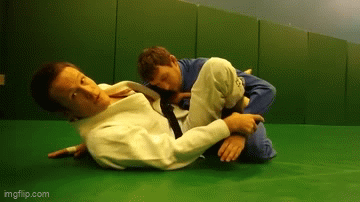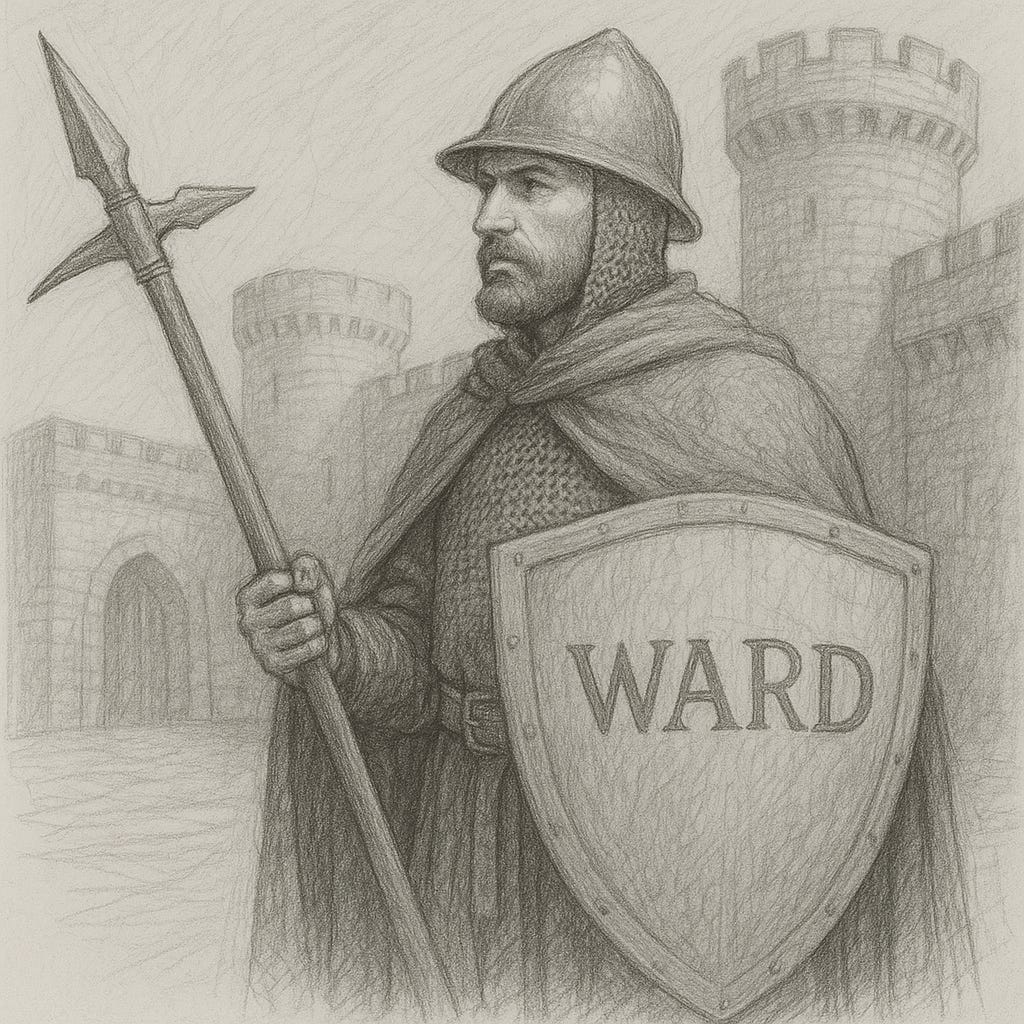Once again, the Gracie Jiu Jitsu practitioner shows his understanding of the gward.
In the early days of my exposure to jiu jitsu, I was exposed to a little bit of Brazilian Portuguese. I don’t mean to imply that I’m fluent, but it does sound natural to my ears today, and I can pick out a few words in real time now (and even have a very slow and simplistic conversation).
Lots of the early videos I could get my hands on had Portuguese narration (if they were instructional tapes), or they had aired on SporTV in Brazil live, so there was running Portuguese sporting-event style commentary. A great many of these videos were also narrated in English, by a native Brazilian fluent in Portuguese.
Even the best English-speakers had traits that let you know they were from Brazil—I know this by coming at it from the other side, but the phonemes don’t exactly match up in a one to one ratio between the languages.
One place I zeroed in on was the word guard. That’s because this word was prominent anywhere discussions about jiu jitsu were going on, since the guard was a very distinct selling point for jiu jitsu. Other martial arts focused predominantly on striking on the feet, but jiu jitsu made it a point to show how you could fight on the ground… even with your back to the ground.
The guard was magical to me. I had wrestled in high school and been introduced to judo, but fighting off your back was still foreign—yet completely intriguing, like some exotic animal you once saw on a nature show. Instead of just losing (being pinned), you could actually win a fight or match from your back. In fact, it was common if you knew jiu jitsu.
The phrase “the guard” was everywhere in the late 90s as I was entering the BJJ chat. If you were in the guard, you needed to be careful. Passing the guard (getting around the legs to a controlling position) became an important skill set to possess.
The word guard was also notable because of the way it sounded to me when spoken by native Brazilian Portuguese speakers. It came out sounding more like gward to me.
All of the native English speakers doing jiu jitsu seemed to focus on the way this word sounded, too. If you wanted to imitate a Brazilian black belt, you only needed to swap out the way guard was pronounced with gward. Our standards weren’t terribly high, I’m afraid.
As usual when something sounds odd to my ears, there’s a story behind it. Here, the tale is etymological—both guard and ward are really derived from the same word, and you can really hear that connection when you hear the word guard pronounced as gward. It’s actually odd that we native English speakers don’t pronounce the w sound in guard.
The last common origin is the Proto-Germanic root *wardōn, which means to watch or to guard. The Franks clung to the word wardōn, and the Normans brought that word right over to England, where people who didn’t speak Frankish (or proto-French) as a language heard a hard G sound at the front of the word, since that’s the phoneme that came closest.
Wardon became garde, and the G sound stuck, but oddly enough, the W went away. This is due to linguistic drift—when two groups of people who speak the same language differ slightly in their pronunciation, that difference can widen to a chasm if they’re separated by enough distance.
There’s also not really a gw- sound in English. If you’re thinking of the name Gwen, I did too, but that’s actually a Welsh name and an outlier.
You’ll see this version of *wardōn in lots of places in English today. Guardians of the Galaxy and The Bodyguard are just two blockbuster Hollywood movie examples, but there are somewhat deeper examples like regard and disregard. Re-guard literally meant to look again, so regard means taking another look at something more closely or specifically.
Meanwhile, the word ward has simply retained its original W sound, so it’s still just plain ward. There are the obvious ones like warden and steward, both building on the idea of protection and watching. A ward in a hospital is a zone of control and careful observation. You might give someone a major award for a job well done, but back in the day (back in the century?) it meant that you were assigning something to someone—not necessarily a good thing.
Ever notice this about ward/guard? Ever notice it about any other two words?






Wards of the Galaxy was a pretty gweat movie! There, I said it.
Guard is used in many contexts. The original meaning continues to exist as people in this position are still used as a check against improper admittance to anything. "Changing of the guard" has a literal meaning (vis the ones used by the royal family in Britain), but it also has a figurative meaning when social and political bodies have a change of leadership. But sports fans also know its meaning in basketball- referring to the two players in the back of the formation who "guard" the basket against a score by the other team.
Ward also has multiple meanings. A modern one is an underage person without parents under the guardianship of others or a larger body. And it can also be a person's first or last name (as in TV patriarch Cleaver and television animation producer Jay, respectively.)